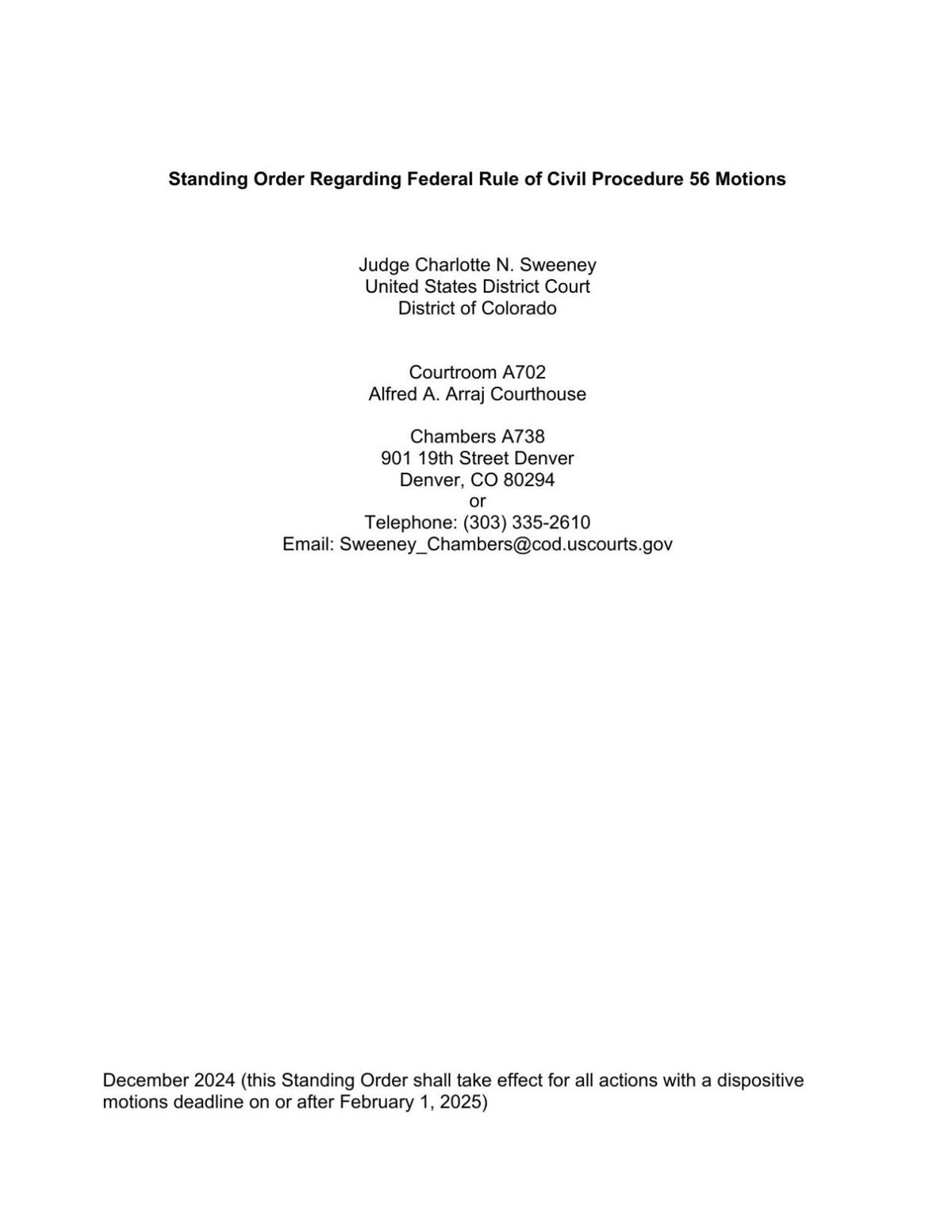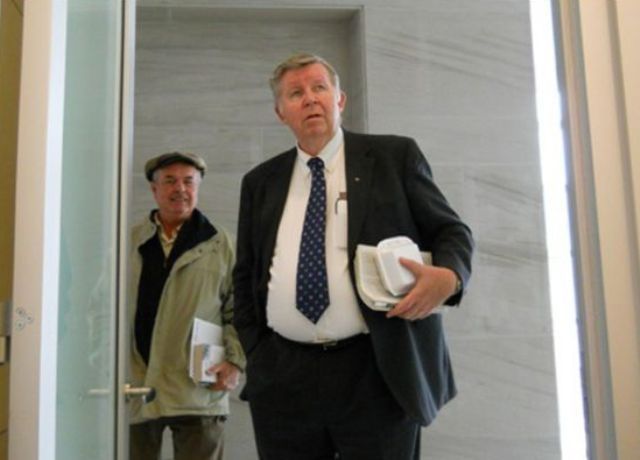What’s in a name? 2 federal judges hold ‘hearings’ differently than advertised
Soon after her appointment to Colorado’s U.S. District Court in 2021, Judge Regina M. Rodriguez implemented a new procedure for handling motions for summary judgment — meaning one party in a civil lawsuit is asking to end the case in their favor without a trial.
She began requiring lawyers to identify, in chart format, all of the key undisputed facts illustrated by the evidence. Then, she would hold a hearing with the attorneys to determine if it really was time for summary judgment, or whether it was obvious the motion would likely be denied.
Before the change, “nine times out of 10 what I was finding is one side said it was disputed and the other said it wasn’t disputed and sure enough, there was dispute on both sides. I was getting so frustrated,” Rodriguez told an audience of lawyers in November 2023.
At the time, she added, she had held 18 hearings to address lawyers’ intent to file summary judgment motions. Post-hearing, fewer than half of them filed motions. Of the rest, half of the cases settled.
“I guess the quid pro quo, if you will, of my asking you to work and really think through the motions for summary judgment and to spend time getting down to the brass tacks of it,” she said, “is that once the motion is filed, I do work hard to turn around an order as quickly as possible.”
Lawyers who spoke to Colorado Politics reacted favorably to the procedure, which Judge Charlotte N. Sweeney has since adopted.
However, both judges advertise the proceedings as “hearings” that take place “in” their courtrooms. What they do not disclose is that the proceedings are actually held off-the-record, behind closed doors.
“They are just mislabeled. The first time I went in, I was expecting that it would be a hearing because that’s what it was called. So, I was surprised to go back into the chambers,” said an attorney, speaking on condition of anonymity because they have cases pending in the district court.
“I would rather they be entered in the docket as ‘conferences’ or ‘in-chambers conferences’ and not ‘hearings,’ since the latter term implies public access,” said Gabe Roth, director of the advocacy group Fix the Court. “I do think that whenever attorneys appear before a judge, it should be noticed in the docket, with a clear indication of where and when it’s taking place (and, if it’s taking place in the courtroom, if there will be remote access for the public).”
The standing orders issued by Rodriguez and Sweeney describing the practice refer to a “hearing” and outline what the discussion at the hearing will include. The judges’ public calendars and docket entries also suggest — or state outright — that the hearings will take place in their courtrooms.
Nowhere do they indicate the hearing will actually be held in private.

Responding on behalf of the judges, both of whom are recent Joe Biden appointees, district court Clerk Jeffrey P. Colwell explained the proceedings are intended to be informal discussions that more efficiently advance civil cases toward a final outcome.
“These are not ‘hearings’ in the context you seem to refer,” he said. “No evidence is presented, no witnesses, no arguments. These are informal hearings, a.k.a. conferences, permitted by Rule 16 of the Federal Rules of Civil Procedure. Rule 16 permits, and encourage judges, to hold pretrial conferences.”
However, neither judge uses the term “conference” nor references Rule 16 in her procedural order.
Although Colwell said the conferences happen “any time” a litigant indicates an intent to file a motion for summary judgment, Colorado Politics pointed out that Rodriguez at one point held such hearings on the record in her courtroom. During one proceeding in July 2023, she dissuaded a police officer defendant from filing a motion for summary judgment after observing she was unsure the move would end the case in the defendant’s favor.
Colwell did not say when Rodriguez had moved the hearings behind closed doors, or when Sweeney started to do so. He said the word “informal” appears on the docket to describe some hearings, and that these are not “secret” proceedings.
Colwell also pointed to the Northern District of Illinois, based in Chicago, as another court where judges make use of closed-door proceedings when civil litigants voice an intent to file for summary judgment.
However, the more than half dozen district and magistrate judges on that court who employ the same practice as Rodriguez and Sweeney describe their procedures very differently than Colorado’s judges.
In many cases, “it is helpful for the Court to hold an informal, off-the-record discussion in chambers with the lead attorneys of the parties to discuss whether the filing of a summary judgment motion is advisable,” read the protocols for multiple Northern District of Illinois judges.
One federal judge who uses the same procedure as Rodriguez and Sweeney, speaking on condition of anonymity to avoid drawing attention, prefers to advertise the proceedings as off-the-record conferences.
“I’m not really sure why they describe it the way they do,” the judge said about Rodriguez and Sweeney. “A member of the public seeing it described as a ‘hearing’ — ordinarily, a hearing is going to take place in court. So, they might get the wrong impression based on how it’s described. I think the way I describe it is perfectly fine and no one’s ever had an issue with it.”
The judge added that some portions of their conferences would look “exactly the same” if conducted in open court, but other components — like discussing settlement prospects — would be less desirable to air publicly.
Jeremy Fogel, a retired federal trial judge from the Northern District of California, said Rule 16 does permit and encourage judges to hold pretrial management conferences of the type Rodriguez and Sweeney are conducting. He said he used to hold conferences in his courtroom, but off the record.
“The problem here,” Fogel continued, “is that the docket and court calendar give the impression that there will be a public hearing. In my view, the best practice would be for the docket and calendar simply to note ‘case management conference’ or ‘Rule 16 conference.'”
Those who spoke to Colorado Politics described the proceedings as beneficial for resolving a case, narrowing the issues or saving everyone’s time by not filing a motion that would likely be denied.
However, said the lawyer speaking anonymously because of pending cases, seeing the judges advertise the proceedings as a hearing “is confusing because that’s not really what it is.”
Colorado Politics Must-Reads:















